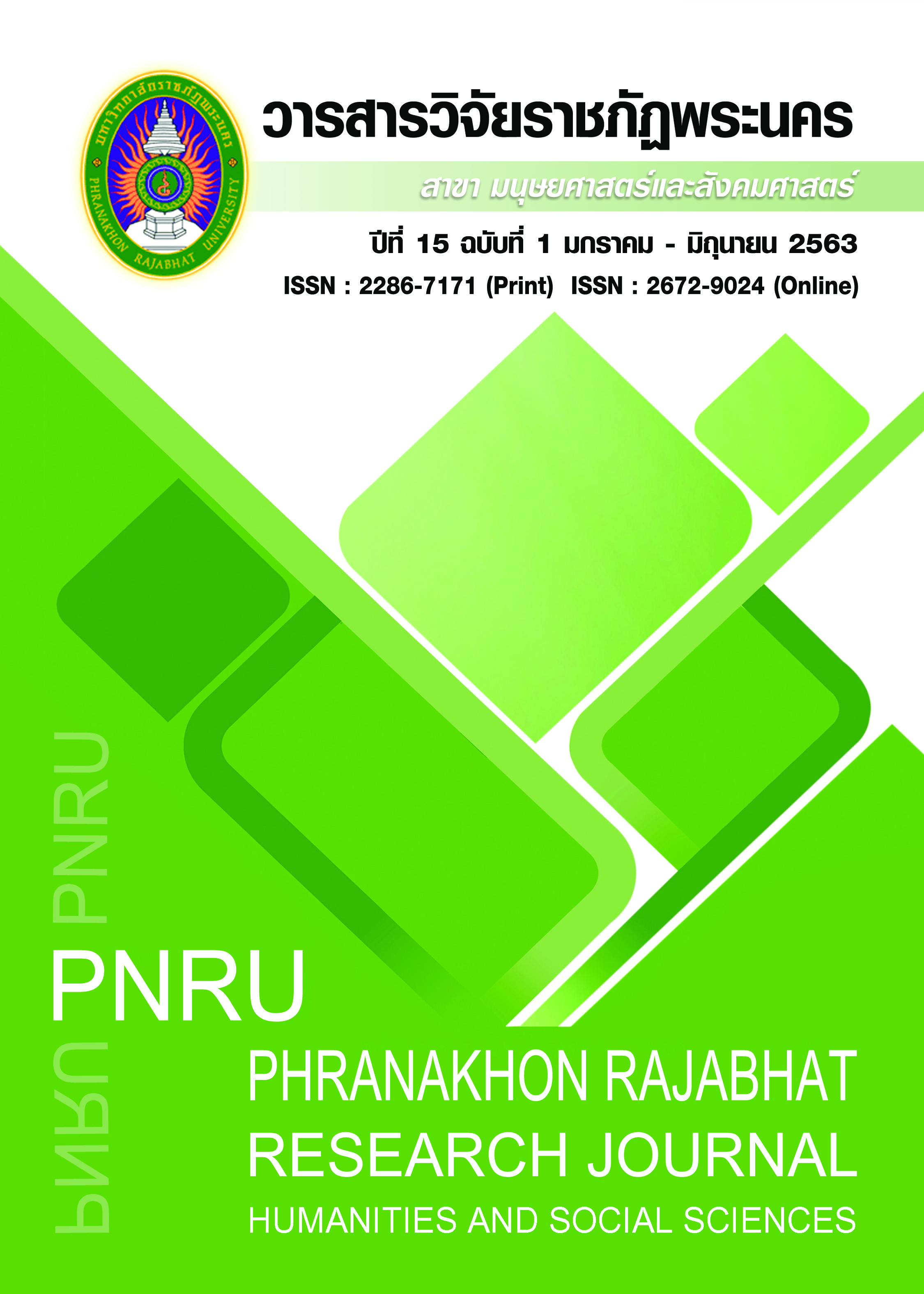THE THE DEVELOPMENT OF ONLINE INSTRUCTIONAL MEDIA FOR INDEPENDENT LEARNING OF ENGLISH IN TERTIARY LEVEL EDUCATION
Main Article Content
Abstract
The objectives of this study were to develop online instructional media for independent learning of English in tertiary level education; investigate the students’ learning satisfaction towards independent learning of English in tertiary level education using online instructional media, and compare the students’ learning achievement between control group and experimental group for independent learning of English in tertiary level education using online instructional media. A purposive sampling was applied to select two sections of forty tertiary level EFL students each; one as control group and the other as experimental group. The experimental group was treated with online instructional media whereas the control group was taught using the traditional method. The quantitative data and the qualitative data were collected through post-survey questionnaire, pretests, posttests, as well as focus group discussion. The quantitative data were analyzed and interpreted using inferential statistics t-test with p≤.05 level of significance, mean, and standard deviation. The qualitative data were analyzed using content analysis method. The results revealed that the students’ average level of satisfaction was considered as of a high level with mean score of 4.44 and SD of 0.10. The pretest mean score in the experimental group was significantly higher than that of the control group with the mean difference of 0.46. After the treatment for eight weeks, the posttest mean score in the experimental group was also significantly higher than that of the control group with the mean difference of 0.43. The responses of focus group discussion confirmed that incorporating this learning platform in teaching and learning remarkably had a positive effect on students’ learning satisfaction and achievement.
Article Details
Each publish articles were copyright by Phranakorn Rajabhat University
Any contents which appeared in each articles in the journal were authors personal opinion. It did not relate to Phranakorn Rajabhat University and other instructors in the university. Each authors would take responsibility on their articles. If there are any mistake, the authors will take responsibility themselves
References
Amandu, G., Muliira, J.K., & Fronda, D. (2013). Using moodle e-learning platform to foster student self-directed learning: Experiences with utilization of the software in undergraduate nursing courses in a Middle Eastern university. 3rd World Conference on Learning, Teaching and Educational Leadership. Procedia-Social and Behavioral Sciences. 93 (2013) 677 – 683.
Blin, F. (2004). CALL and the development of learner autonomy: Towards an activity theoretical perspective. ReCALL. 16(2) 377-395.
Brown, H. D. (2007). Principles of Language Learning and Teaching. 5th ed. New York: Pearson.
Education First (2018). EF English Proficiency Index. Retrieved November 14, 2018, from http://www.ef.co.th/epi/regions/asia/Thailand
Ernenebaatar, A. S., Baigaltugs, S., Zolboo, D. (2011). Comparisons of the Learning Management Systems, International Conference EICHTE-2011, At Ulaanbaatar, Mongolia, MUST, Volume: 1.
McKim, A. C. (2017). The Value of Mixed Methods Research: A Mixed Methods Study. Journal of Mixed Methods Research. 11(2) 202–222.
Mohamad, M. M., Sulaiman, N. L., and Salleh, K. M. (2015). Measuring the Validity and Reliability of Research Instruments. Procedia - Social and Behavioral Sciences, 204, 164–171.
Murry, L., Hourigan, T., Jeanneau, C. & Chappel, D. (2005). Netskills and the current state of beliefs and practices in student learning: an assessment and recommendations. British Journal of Educational Technology. 36 (3) 425–438.
Pappamihiel, N. E., & Walser, T. M. (2009). English Language Learners and Complexity Theory: Why Current Accountability Systems Do Not Measure Up. Educational Forum. 73(2) 133-140.
Pitiyanuwat & Anatrasirichai (2002). English Language Teaching and Education in Thailand: A Decade of Change. Retrieved December 6, 2018, from http://arts.kmutt.ac.th/crs/downloads/article_repository/20160316080357-english-language-teaching-and-education-in-thailand-a-decade-of-change.pdf
Sarica, G., & Cavus, N., (2008). Web based English language learning, The 8th International Educational Technology Conference, Anadolu University, 6-9 May, Eskiúehir, Turkey.
Suppasetseree, S. (2010). The Use of Moodle for Teaching and Learning English at Tertiary Level in Thailand. International Journal of Humanities. 8(6) 29-46 January 2010. DOI: 10.18848/1447-9508/CGP/v08i06/42964.
Xu, H. & Mahenthiran, S. (2016). Factors that Influence Online Learning Assessment and Satisfaction: Using Moodle as a Learning Management System. Retrieve December 15, 2018, from http://ccsenet.org/journal/in


